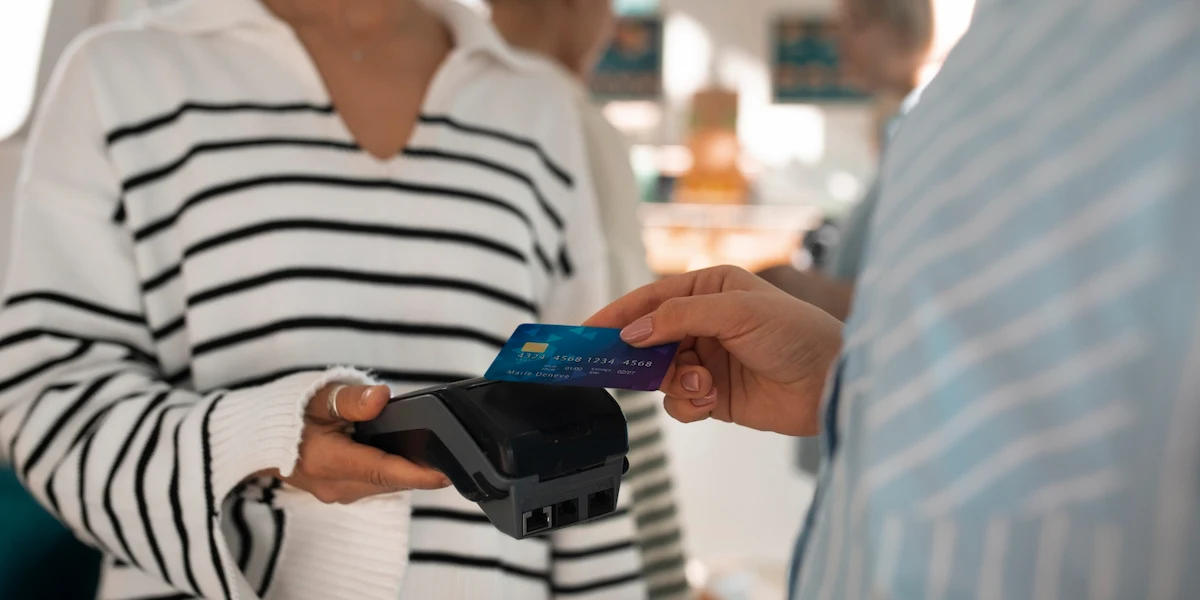Capital One’s Power Play Signals a Payments Shake-Up
Capital One’s recent acquisition of Discover marks a defining moment in the global payments ecosystem. As digital payment habits evolve and competition intensifies, this deal isn’t just about scale—it’s a strategic bet on how payment networks must adapt to stay relevant in a world increasingly shaped by fintech innovation and regulatory complexity.
To understand where card networks are heading, I sat down with two key figures shaping that future: Bunita Sawhney, Chief Consumer Product Officer at Mastercard, and Judith McGuire, Senior Vice President of Products at Discover. Their perspectives offered a revealing look into how legacy players are reinventing themselves for a digital-first economy.
Reinventing for the Digital Consumer
Both executives underscored the acceleration of digital transformation in payments—fueled by pandemic-era shifts and rising consumer expectations.
"It's a really wonderful time to be innovating in the network space." — Bunita Sawhney, Chief Consumer Product Officer, Mastercard
Sawhney emphasized Mastercard’s focus on speed, convenience, and embedded technology: “Payments are part of everyday needs, whether I’m a merchant accepting payments or a consumer needing a seamless way to pay.” McGuire echoed this sentiment, citing open-loop transit and EV charging as use cases Discover is prioritizing to meet shifting demand.
Tokenization and AI: Building the Trust Layer
Trust remains a central pillar as the payments landscape grows more complex—and both leaders see AI and tokenization as key enablers.
Sawhney discussed “Mastercard Agent Pay,” a new product powered by generative AI that anticipates user preferences across various scenarios, from dispute resolution to travel services. She highlighted Mastercard’s broader shift toward becoming an intelligent, invisible layer of daily life through agentic tokens.
McGuire pointed to tokenization as a major leap forward in both user experience and security.
"Tokens replace your card number with random digits, protecting your information from theft." — Judith McGuire, SVP of Products, Discover
Beyond protection, tokenization improves approval rates and simplifies credential management—critical for maintaining trust in digital payments.
Fintech Rivals and Big Tech Collaboration
One of the biggest threats to traditional networks is the rise of fintechs and tech giants offering alternative rails. But both Mastercard and Discover view these players more as partners than existential threats.
“Mastercard is built on partnerships,” said Sawhney. “We add and create value with our partners, which earns us the right to participate.” The company has backed this strategy by investing in domestic infrastructure and real-time account-to-account payments worldwide.
McGuire added that Discover supports fintechs with backend services—fraud detection, authorization, and fast settlement. “We see ourselves as payment rails, facilitating seamless payments behind the scenes,” she said.
Apple’s entry into the space, with Apple Pay and other services, adds yet another layer of complexity. But Sawhney framed this relationship as symbiotic: “When we collaborate with big tech, like Apple, we create better consumer experiences.” She pointed to passkeys and tokenization as technologies that balance security with usability.
Nationalism and Regulation Reshape the Playing Field
Beyond technology, global payment networks are grappling with rising economic nationalism. With Europe and others seeking payment sovereignty, networks are being forced to adapt.
Sawhney described Mastercard’s model of local-global partnerships, such as its work with Germany’s Giro. “Every country needs to think about its specific needs,” she said, arguing that such hybrid strategies can defuse national resistance while preserving global scale.
McGuire highlighted Discover’s similar playbook. “We partner with local schemes. Local traffic remains domestic, but when cardholders travel internationally, Discover provides the infrastructure.” These alliances are becoming critical as geopolitical complexity increases.
Is Blockchain the Future of Payments?
The long-term question looming over the sector is whether blockchain can eventually replace or supplement traditional rails.
McGuire remains cautiously optimistic. She sees promise in cross-border and B2B use cases, but warned that regulation and consumer behavior remain major roadblocks. “Mainstream adoption will depend on consumer protections and regulatory clarity,” she said.
Sawhney was more bullish, especially on stablecoins.
"Blockchain and stablecoin absolutely have the opportunity to become mainstream." — Bunita Sawhney, Mastercard
She pointed to Mastercard’s work with MetaMask, Nuvei, and Kraken as evidence of its commitment to building crypto-ready infrastructure—even if merchants aren’t yet ready to settle in digital currencies.

Consolidation for Survival
Ultimately, Capital One’s acquisition of Discover isn’t just a headline—it’s a clear signal that legacy players are racing to scale and adapt.
"We must meet consumers where they are and anticipate where they're going next." — Bunita Sawhney, Mastercard
In an environment defined by rapid innovation, geopolitical friction, and disruptive entrants, adaptability isn’t optional. Those that evolve quickly—and embrace partnerships, tokenization, and emerging tech—are best positioned to lead the next chapter of payments.
Source: Forbes, June 24, 2025.






